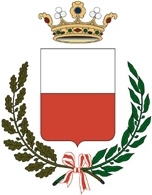
Lucca and its patron saint | ||
| | ||
Saint Zita | ||
| Saint Zita is the patron saint of housewives, housemaids and bakers. Saint Zita herself worked as a housemaid in a rich family's home in Lucca, where she died on 27th April 1272. She used to spare all she could, to give it to the poor, was very appreciated and loved by them for her generosity and by the family where she worked for her good work and good character. According to the legend, another housemaid who worked with her, maybe jealous of the affection Zita received from everybody, told their master that Zita used to steal what she gave to the poor. One day her master met Zita while she was going to see a needy family, with her apron full of things for them. He asked Zita what she was carrying and she answered that she was carrying only flowers and fronds. When she loosened her apron, a lot of flowers fell at her feet. | ||
To remember this event, every year there is the Fair of Santa Zita that lasts several days in the week including the 27th of April. It is a fair of flowers, very fascinating for all the colours of spring flowers, which takes place in Piazza Anfiteatro. | ||
as seen by Viola in music, Everything about the violaPiazza Anfiteatro is a very peculiar characteristic of Lucca. As the name says, the building used to be a Roman amphitheatre. During medieval times, people built their homes within its structure. So today you can see a series of houses all joined together in one very large building with an oval plan, with arcades at the ground level. This forms a very large square, often used as a market square. | ||
When I first saw it, entering the square I felt a bit strange, I wondered "Why is this building like this?" (I didn't know its origin!). Then when I read the story on my tourist guide I could sort of see those ancient people trying to recycle a building that they no longer used as it was originally intended. Lucca is in the Tuscany region, its altitude is 19 metres and has about 80,000 residents. It's not very far from both the hills and the Thyrrenian Sea, with the renowned towns of Viareggio and Torre del Lago where they organise the Puccini Opera Festival every summer, with open air Puccini's operas. It was a Roman colony since 130 B.C. During the middle ages it was the capital of the duchy of Tuscany, then it became a comune and later, from 1369 to 1799, it was a republic. It remained for a short time under Napoleon first and the Borbone king later and in 1861 it became part of the newly unified Kingdom of Italy.
Lucca is one of the many Italian cities where you can admire a sort of "open air museum" (as they say), with artworks from different times all around you. It's also called the city of 100 churches. Several important composers were born in Lucca, the most famous one is Giacomo Puccini, whose 150th birth anniversary was celebrated in 2008, together with Luigi Boccherini and Alfredo Catalani. | ||
Traditional food | ||
| ||
Other important events
| ||
Thanks to Viola in music, Everything about the viola, who provided the above description of Comune di Lucca. Visit their website www.viola-in-music.comFor more information: Ufficio Turismo Comune di Lucca Palazzo Orsetti Via Santa Giustina 6 Lucca tel. +39 0583 4422 Monday to Friday 8.00 - 18.00, Saturday 8.30 - 13.30 e-mail: urp @ comune.lucca.it Visit the official website of the Comune di Lucca Cerca nel sito
When you contact this comune let them know you found them on www.calendar-of-patron-saints-and-cities-in-italy.com Go from Lucca and its patron saint to the Tuscany region
|



